
Mr. Destiny
-Review
A man gets his selfish wish...
Movies love their “what ifs.” And Mr. Destiny, a simple film about regrets and consequences, offers a doozy: On his 15th birthday, Larry’s high school baseball team is on the verge of winning their championship…and he’s last at bat. With two strikes already, Larry needs to hit the next pitch. If he does, he’ll win the game and be heralded a hero.
But miss he does. As he prepares to swing, a strange flash of light causes him to strike late and flub a sure grand slam. The almost hero is now reduced to town laughingstock in the blip of a second. And even twenty years later, it’s a humiliation he’s never quite lived down.
But adult Larry still has a pretty good life. Loving wife, decent job. A good swell of friends and a loyal best buddy. Even a nice house, despite the unfinished yard and driveway. It’s a conventional, predictable existence, but certainly not bad. And yet, Larry still can’t help but think…if only I’d hit that ball!
Mr. Destiny has been compared to the likes of similar films, from Frank Capra’s It’s a Wonderful Life to Brett Ratner’s The Family Man. They’re cut from similar material, featuring men who are granted a miraculous chance to view an alternate life or version of themselves. The premise works because it’s universal. Who doesn’t long for a second try? Who doesn’t ponder what could have been? The catch, of course, is the load of alternate consequences that would naturally follow: if the past can be reloaded like a save point in a video game, what new decisions and resulting problems might arise to replace the old?
Indeed, Larry gets his wish thanks to an angel-like being who can apparently warp the very fabric of reality. In an instant, Larry becomes the hero—he did hit that ball!—creating his own celebratory firework display as the grand slam soars into the lights afar. Now adored by all, Larry’s life veers down a different road, crowning him, by age 35, as the head executive at a powerful corporation. He’s now married to a beautiful sexpot. Has two kids. Lives in a mansion. Has a garage full of expensive, vintage cars. And has become, maybe…a corporate slimeball. A duplicitous tool.
It’s convenient, of course, that Larry’s victory over Fate still keeps him rooted to his childhood town. This homegrown approach works in It’s a Wonderful Life because Capra took the necessary measures to establish a strong, sympathetic community of secondary characters to make the fictional Bedford Falls come alive. But Destiny’s plot is too narrow—too rushed—to establish anyone convincingly beyond Larry himself. And he, maybe out of necessity, is too the doofus to be taken seriously.
In fairness, Larry doesn’t “remember” his new life’s previous history. He doesn’t know “this” wife. Doesn’t recognize “these” kids. Doesn’t understand how to run the company he’s suddenly overseeing. But even as he adapts to his updated existence, he never gains that critical self-awareness one needs to survive. He barely pretends to recognize the butler or his fellow executives. He’s indifferent to his children. And on just the second day of this new reality, he’s already chasing after his former, other-life "wife" without a hint of discretion. He’s completely tactless.
Other concerns—more ethical concerns—are also raised. Should Larry be making love to this newish wife…especially when he’s still pining for the original? And what of the two children he’s suddenly sired? Shouldn’t he be interested in forming some kind of bond with them? One wonders whether “good” Larry is, deep down, just as contemptible as his corrupt, corporate counterpart. Or rather, is everything in this second life just an illusion--a magical stage play--that exonerates Larry from any true wrongdoing? The movie, clearly written for wistful middle-aged men, has no interest in such conundrums.
Mr. Destiny is fun…but it’s a fable that doesn’t challenge, doesn’t explore, doesn’t respect the ramifications of a man’s errant, maybe foolish wish. Within a couple of days, Larry’s fantasy—his weekend fling—is concluded without consequence. The marriage—his affair—forgotten. The children—his progeny—conveniently wiped from existence.
Might Larry have been a force for good in that alternate, darker world? Does he regret that shameless, “imaginary” affair? Does he ever consider those lives suddenly conjured, then swiftly erased? Or to frame it all another way: Which of the two Larrys is truly the worst one?
And yet, if the movie doesn’t care...then why would he?--D
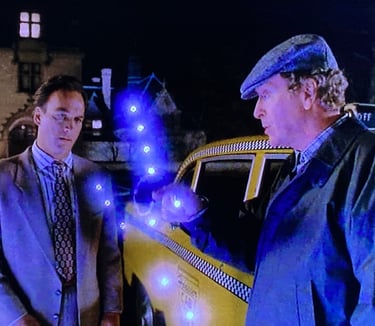

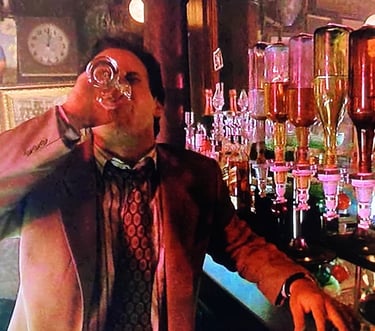

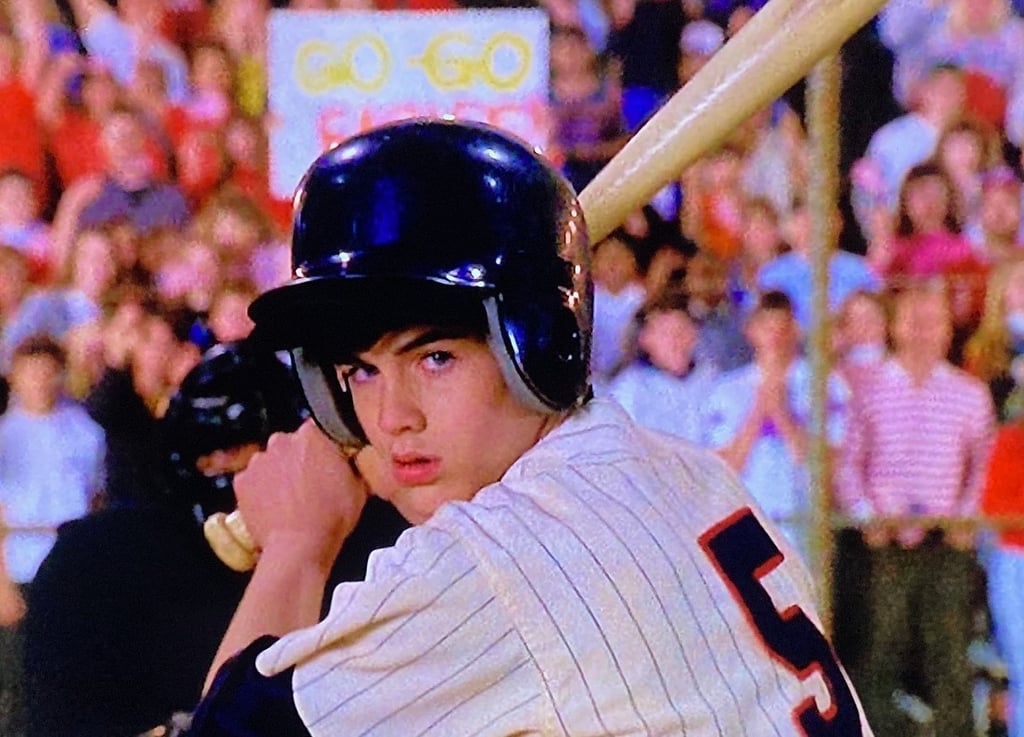

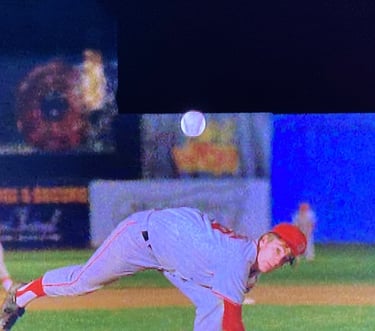

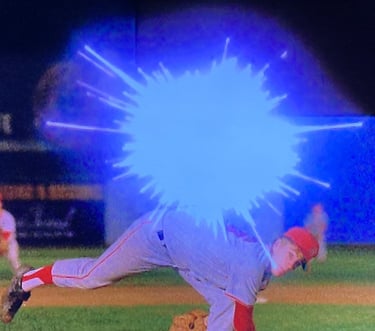

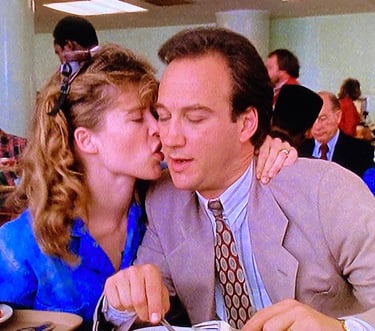

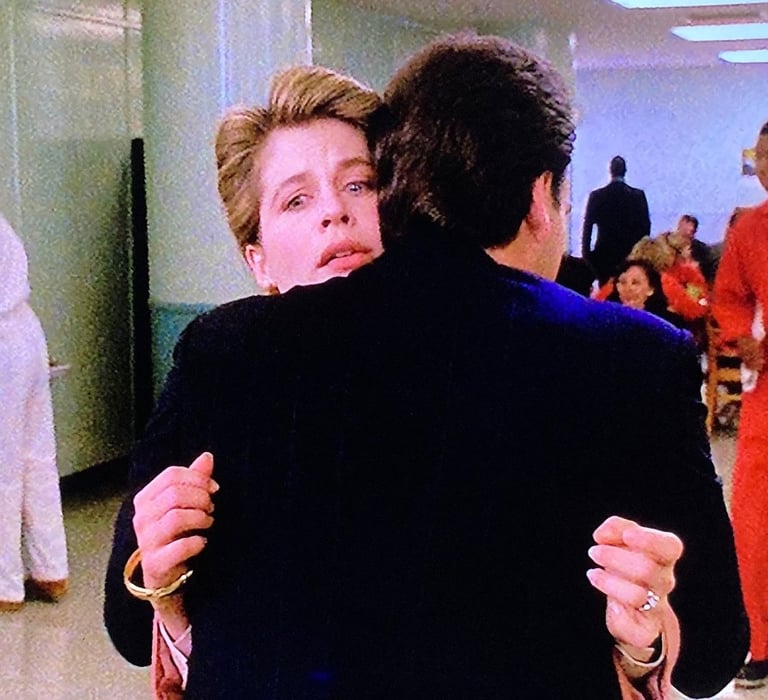



The DVD's splash page shows a corvette and a hot blonde. Neither appears in the actual film.
The reason Larry strikes out is due to that inexplicable flash of light shown above. Did he really miss, then, or was he being manipulated by some unseen power? The movie never explains, and this fact is never mentioned again.
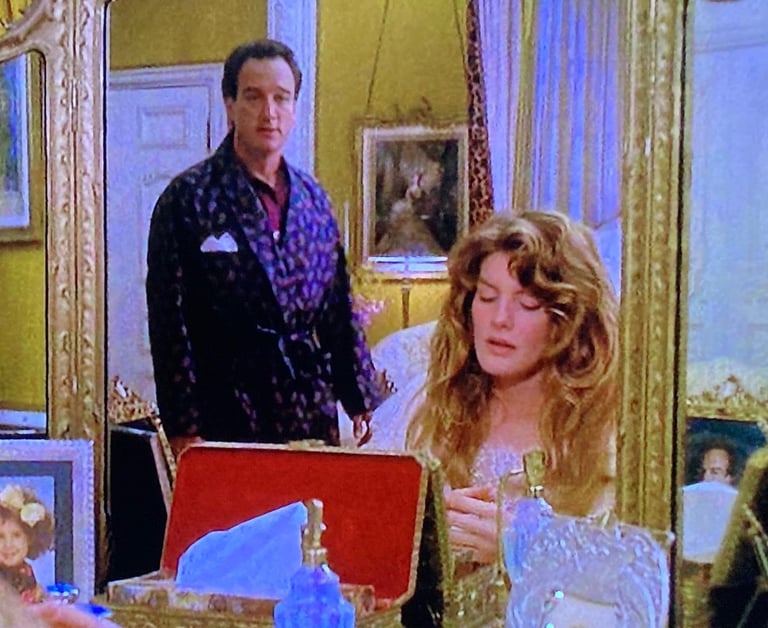

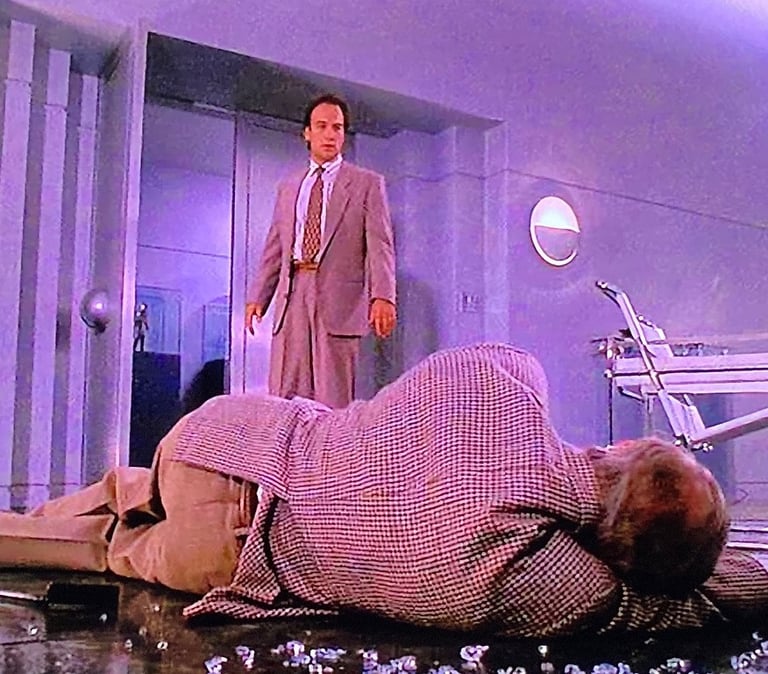

Larry's original life includes an attractive, doting wife, an important aspect that he loses in the wake of his wish. Now the same woman--a colder and more austere version--hates him, as seen in the bottom shot. Interestingly, this iteration seems more independent and financially successful than the homespun original.
Larry's "new" wife learns of his adulterous intentions, and thereby kicks him out of the house. Later, he's framed for her father's murder. So much for saving the marriage.
Contact: lostnostalgiaproductions@gmail.com
Website: www.lostnostalgia.com
Like what we're doing? Please consider throwing us a dollar into our Patreon page's tip jar!


